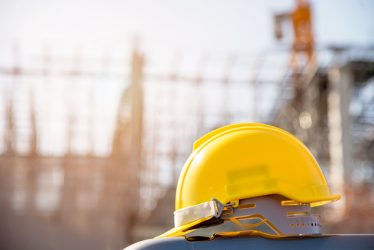
HM Revenue & Customs (HMRC) announced a 12-month deferral on the domestic reverse charge last year, which will now apply to construction services from 1 October 2020.
The reverse charge legislation will place responsibility on the contractor to account for the VAT on the services supplied by its sub-contractors.
It aims to tackle the issue of missing trader fraud in the construction sector in a similar way to the previous domestic reverse charges for the sale of computer chips and mobile phones.
Under the new regime, a UK VAT-registered business, which supplies certain construction services to another UK VAT-registered business for onward sale, will be required to issue a VAT invoice stating that the service is subject to the domestic reverse charge.
However, the recipient must account for the VAT due on that supply through its VAT return, instead of paying the VAT amount to the supplier. The recipient may then recover the VAT amount as input tax, subject to existing rules.
Which construction services will it apply to?
The reverse charge will only apply to suppliers of specified construction services to other businesses within the construction sector in the UK. These include the following:
- Painting or decorating the external or internal surface of any structure or building
- Installation of heating systems, air-conditioning, lighting, power supply, drainage, ventilation, water supply, sanitation and fire protection in any structure or building
- Construction, repair, extension, alteration, demolition and dismantling of structures or buildings (including offshore installations) whether they are permanent or not
When does the legislation not apply?
The domestic reverse charge will not apply to specified services if any of the following criteria are met:
- The services are supplied to an end-user, such as the property owner, or directly to the main contractor that sells or lets a newly completed building
- The recipient makes onward supplies of those construction services to a connected company
- The recipient is not VAT registered or required to be VAT registered
- The recipient is not registered for the CIS
- The supplier and recipient are landlord and tenant or vice versa
- The supplies are zero-rated
How can you prepare your business?
To ensure your business is prepared ahead of the legislation change you can start to consider the following aspects of your business:
- Review supplies made to and received from other VAT registered contractors to establish whether these will be subject to a reverse charge from October 2020
- Consider the adaptions that will need to be made to their accounting systems to deal with this change
- Consider the impact on their cash flow from October 2020 of not receiving the VAT from their customer and if there are any other ways to mitigate this impact
For help and advice on matters relating to the VAT reverse charge contact our expert team today.

